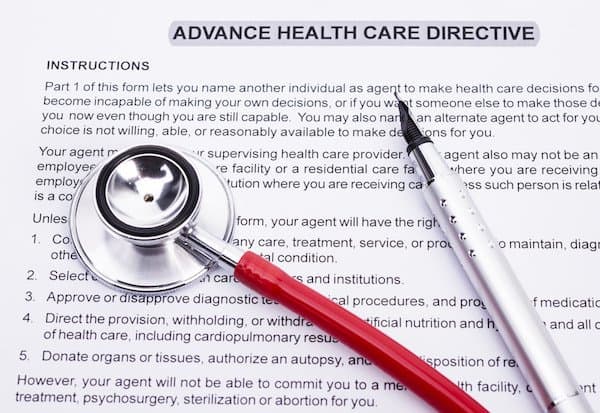It’s not something you want to think about. Certainly not something you’d like to prepare for or expect. But considering a few basic steps to take if you or a loved one suffers a health crisis can help you weather a tough time.
By health crisis, I mean one of two things: the first is an emergency that results in a trip to the hospital. The patient may be conscious. Unfamiliar sights, sounds and people may increase family members’ anxiety. Another type of health crisis is when someone receives a diagnosis such as cancer. Aside from this jarring news, the patient faces major decisions and immobilizing fear.

While no one wishes to confront a health crisis in her future, keeping a few points in mind will help you weather one. Here are 7 things you can do in a health crisis.
1. Breathe
The health crisis may have landed you in a hospital where machines beep nonstop. Or you may feel pressured by medical staff to choose among treatment options. At any rate, pause for a moment. You aren’t going to be your best self or help your loved one if you are scurrying around in a frantic state. One of the best things you can do it is to SLOW DOWN.
There likely are some important decisions you have to make. Don’t let healthcare professionals sweep you along. They may have confronted your same issue many times before, but this is new territory for you. Ask questions in a respectful manner. Seek clarification on things that are confusing. Give yourself the space you need to consider your options.
2. Organize communications
While family and friends may want to help with the patient’s care, it’s best to centralize communications with one person. This person should be available to meet with doctors during their hospital rounds, and/or to go with the patient on doctor visits if not in the hospital.
It helps the medical team to have a single family member or friend with whom they can communicate, particularly in a crisis situation. This individual can take notes, summarize conversations with different specialists and help the patient process information. She also can assist family and friends in knowing how best they can help out during the health crisis.
The family point person might use a text or email list to keep family and friends updated. This practice can reduce time-consuming individual inquiries. It also allows relatives who call the patient himself to focus on the person instead of the disease.

3. Take notes at doctor visits
An often-repeated adage suggests people remember only 20% of what they hear. Studies have shown that when it comes to medical information, the figure may be even less. Further, the more information medical providers give you, the less you keep. Confusing medical terminology and plain old stress make it hard to absorb all the information you need to evaluate your options. Someone should go with the patient on all doctor visits and take notes.
Ideally, the same person can go to all doctor visits and help maintain continuity of understanding. But you always should avoid sending the patient alone. He needs to have a friend or family member to take notes and make the best use of the doctor’s time. You might even ask if the physician would allow you to record the conversation on your phone.
In this era of managed care, doctors are likely to be over-scheduled. Additionally, patients find some medical professionals easier to talk with than others. But you can improve all your appointments by bringing a list of questions. As a patient, make sure to clarify things that are confusing to you. Don’t be afraid to ask “stupid” questions. It’s your body, after all, and you deserve to understand what’s going on.
By asking questions and recording answers, you won’t have to ask the doctor to repeat her explanations as much. The patient can make a better-informed decision, and the physician will save time in the long run.
4. Help everyone on the medical team stay in sync
Health crises usually involve many doctors, nurses, therapists and other professionals. While Electronic Medical Record (EMR) systems help medical team members stay in sync, it’s usually a good idea to follow up with an email or phone call. Especially if you have questions.
Here’s a common example. It’s easy for hospital specialists to care for the patient without including his primary care physician (PCP) in the loop. But the PCP will be taking over after the patient leaves the hospital, so it’s helpful to keep this person informed along the way. You can ask the medical team to forward their reports to the PCP.
In cases involving numerous specialists, it can be helpful to use software such as Caresync. This tool allows you to collect and read medical records all in one place. Besides medical team members, the patient can grant family and other advisors access to documents on Caresync. There are also a number of EMR-type apps for smartphones. Talk with your doctors to see what they suggest for your particular situation.

5. Don’t forget to plan for the transition back home
Even after the initial crisis has subsided, life will still be different. If your loved one has been in the hospital, he’ll likely need ongoing therapy, doctor visits and help around the home. Or if the crisis involves a diagnosis such as cancer, follow-up treatment may involve surgery, chemo, radiation — or all of the above. You’ll confront a “new normal,” at least for a while.
When neighbors and friends volunteer to help out, accept. Try working out a schedule for driving or errands. If your loved one belongs to a church, temple or another community group, let the organization know: the other members may be glad to lend a hand.
6. Make lemonade out of lemons
No one wishes for a health crisis, but most people who’ve been through one will say it helped them appreciate their family and friends. And that they learned to enjoy life’s simple pleasures better than before. Yet time in the hospital, or the initial days after a jarring diagnosis, can put everyone to the test. In particular, your loved one may feel her identity is slipping. She may feel defined largely by her symptoms or diagnosis: “the kidney failure in Room 34B,” or “the early-stage breast cancer patient.”
You can help your loved one by giving her a voice, keeping the focus on the person and encouraging good communication with the medical team. Even small steps help a patient feel less like someone who is being “done to,” and more like someone who is choosing her own course of treatment. If she has a sense of autonomy in the midst of the crisis, she might recuperate faster.

7. Take care of yourself
Don’t forget that, if you get sick, you aren’t going to be able to care for your loved one. It’s hard to take time off for yourself during a crisis, but don’t try to manage all on your own. Let people help you, even if you’re “not the type” to accept help. Ask a friend or family member sit with your loved one while you go home to shower and sleep. Get a massage, have a meal with a friend, take a walk in the fresh air.
Even if you’re away from the hospital, people can reach you by phone if something happens. But know that by taking a break you’ll benefit yourself, your loved one and ultimately the relationship you share.
Health crises often arise without warning. That’s why we call them emergencies. They’re difficult life passages where you likely have to deal with things you thought would never happen to you. You can never fully prepare for one, but remembering these tips will help you pull through it.
I hope you never have to deal with a health crisis. But if you do, follow these 7 suggestions. And let me know of others you’ve found helpful.
Images via: Shutterstock
Join my journey through midlife

Subscribe to Jubilant Age and download a free guide to protecting your loved one's money!
Success! Now check your email to confirm your subscription.



